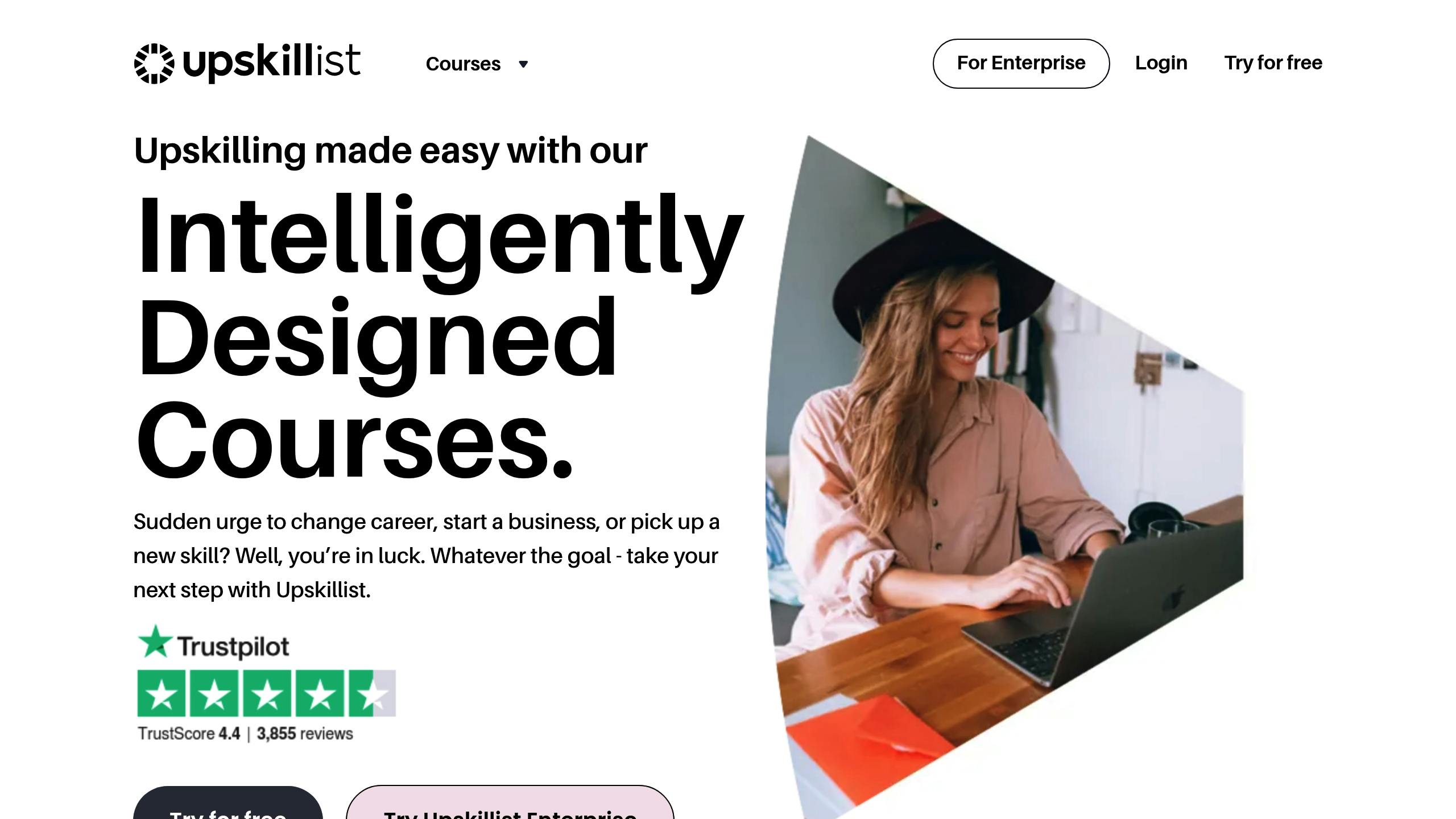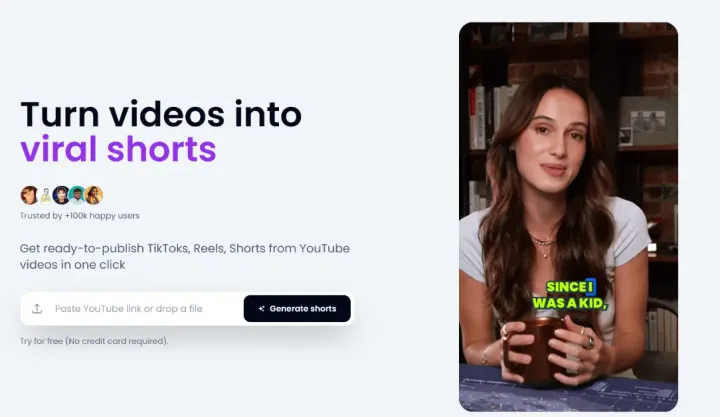The Benefits of Lifelong Learning: How Continuous Education Enhances Your Life
Lifelong learning boosts career growth, enhances mental health, and fosters personal development, making it essential for success in today's world.

Lifelong learning is essential for staying relevant in today’s fast-changing world. It’s about continuously acquiring new skills and knowledge, whether for career growth, personal development, or mental well-being. Studies show that 73% of adults identify as lifelong learners, with benefits ranging from improved job prospects to reduced cognitive decline.
Key Takeaways:
- Career Growth: Learn in-demand skills like data analysis, AI, and digital marketing to stay competitive.
- Mental Health: Ongoing education boosts memory, reduces stress, and lowers the risk of cognitive decline by up to 32%.
- Confidence & Personal Growth: Lifelong learners report higher life satisfaction and resilience.
Platforms like Upskillist, Coursera, and edX make learning accessible with online courses and certifications. Start by setting clear goals (e.g., mastering Python in 3 months) and combining online learning with real-world practice. Whether for work or personal enrichment, continuous learning is your tool for success.
Unlocking Your Potential: The Importance of Lifelong Learning for Personal and Professional Growth
Personal Development Benefits
While many people focus on career advancement, the personal growth that comes from continuous learning is just as impactful. Studies highlight lasting improvements in cognitive abilities, mental health, and overall self-growth as key outcomes of ongoing education.
Expanding Skills and Knowledge
Learning continuously helps you develop a wide range of skills that often complement one another. This creates a ripple effect - every new skill strengthens what you already know. For instance, a marketing professional might pick up coding to better grasp digital strategies.
If you’re looking for an effective way to challenge your problem-solving abilities, consider exploring problem solution essay topics
Boosting Mental Health and Brain Power
Ongoing education is a powerful tool for keeping your brain sharp. Research shows it can enhance memory, improve problem-solving, and lower the risk of cognitive decline as you age.
For example, picking up new skills like learning a language or mastering digital photography can delay cognitive decline by up to four years. It also reduces stress levels. In fact, older adults learning complex skills like photography have shown memory improvements similar to those of people ten years younger.
Building Confidence and Personal Growth
Lifelong learning has a huge impact on confidence and personal growth. Adults who engage in learning are 2.5 times more likely to report high levels of life satisfaction compared to those who don’t.
This confidence shows up in various ways:
- A greater willingness to tackle new challenges
- Better resilience when facing difficulties
- Increased belief in their abilities at work
- Stronger social ties and community engagement
Platforms like Upskillist play a role in this journey by offering structured courses with clear milestones. Research suggests that each accomplishment creates a “confidence cascade,” where one success leads to another. These confidence boosts often tie directly to career growth - a topic we’ll dive into next in Career Advancement Through Learning.
Career Advancement Through Learning
Lifelong learning isn't just about personal growth - it’s a key driver for professional success. The skills and confidence gained through continuous education often translate directly into workplace achievements, especially in today’s fast-changing job market.
Skills Driving Career Growth
Specialized technical skills can open the door to lucrative opportunities, with many professionals in high-demand fields earning six-figure salaries. Some of the most sought-after areas include:
- Data analysis: Skills like Python and SQL are highly valued.
- Artificial intelligence and machine learning: These fields are reshaping industries.
- Digital marketing: Expertise in SEO and analytics is crucial for online growth.
- Cloud computing: Platforms like AWS and Azure dominate the tech landscape.
- Project management: Mastering methodologies can lead to leadership roles.
Adapting to Job Market Shifts
AT&T’s $200M upskilling program is a great example of how companies are prioritizing internal development. Through this initiative, 70% of tech management roles were filled by retrained staff. This shows how much organizations value continuous learning.
Looking ahead, McKinsey projects a 55% increase in demand for tech skills by 2030, along with a growing emphasis on soft skills . To stay ahead, professionals should:
- Stay informed about emerging trends in their industry.
- Balance technical expertise with strong interpersonal skills.
- Pursue certifications in high-growth areas.
- Develop flexible and consistent learning routines.
Upskillist: A Platform for Career Growth

Upskillist provides CPD-accredited certifications in business, technology, and creative fields. Its platform offers:
- Self-paced courses with lifetime access.
- Programs designed by industry experts.
- AI tools for personalized learning experiences.
These strategies can help you stay competitive. Next, we’ll dive into How to Learn Effectively to make the most of your efforts.
How to Learn Effectively
Learning effectively requires a clear plan and practical strategies to get the most out of your efforts.
Setting Clear Learning Goals
Effective learning starts with well-defined goals. Use the SMART framework: Specific, Measurable, Achievable, Relevant, and Time-bound. For example, instead of saying, "I want to learn programming", set a goal like: "Complete a Python basics certification on Upskillist within three months by dedicating five hours weekly and building three practical projects."
Here’s how to refine your learning goals:
| Goal Component | Weak Example | Strong Example |
|---|---|---|
| Specific | Learn coding | Master Python data analysis libraries |
| Measurable | Get better at it | Complete 5 data analysis projects |
| Achievable | Become an expert in 1 month | Reach an intermediate level in 6 months |
| Relevant | Learn because others are doing it | Learn to automate work tasks |
| Time-bound | Someday | By September 30, 2025 |
Combining Online Learning with Real-World Practice
Blending online courses with hands-on practice leads to better results. For instance, Google's "Grow with Google" program in 2022 showed that participants who combined online learning with workshops retained skills 40% better than those who only took online courses.
Here’s how you can apply this approach:
- Take structured courses to build foundational knowledge.
- Work on real projects to apply what you've learned.
- Join professional communities to share ideas and gain insights.
- Track your progress to stay motivated and focused.
Tackling Common Learning Challenges
Struggling with time management? Try the Pomodoro Technique: focus for 25 minutes, then take a 5-minute break . This keeps you productive without burning out.
Dealing with information overload? Use these strategies to retain more:
- Explain concepts in your own words using active recall.
- Practice spaced repetition to review material at the right intervals.
- Create mind maps to visualize how ideas connect.
- Set up a distraction-free study space to stay focused.
These methods can help you stay organized, retain information, and align your learning with both personal and professional goals.
Conclusion
Research indicates that 73% of adults now consider themselves lifelong learners. This shift highlights the growing importance of staying relevant professionally while also pursuing personal growth.
The benefits of continuous learning go beyond just career development. Studies show it can lower the risk of cognitive decline by up to 32%, while also strengthening resilience in both work and life. This makes ongoing education not just a career move, but an essential part of maintaining overall well-being.
With modern platforms offering flexible, expert-led courses, education has become more accessible than ever. Upskillist, for example, provides opportunities that fit various learning styles and schedules, making it easier to overcome traditional barriers to learning.
Start small by setting clear, focused goals that match your priorities. By combining goal-setting techniques with blended learning methods, you can build a learning routine that sticks and delivers real results.
Whether you're aiming to advance your career or enrich your personal life, consistent effort is key. The research is clear: investing in education today not only opens doors to future opportunities but also adds meaningful value to your life. As technology advances and job markets change, your dedication to learning becomes a powerful tool for navigating what’s ahead.
FAQs
If you're just starting out with online learning, here are answers to some common questions:
What is the best online platform to learn?
The "best" platform depends on what you're looking for. Different platforms excel in different areas:
| Platform | Focus | Features |
|---|---|---|
| Coursera | Academic courses, degrees | Partnerships with top universities |
| edX | Certifications, degrees | Over 3,000 courses from 160+ institutions |
| Upskillist | Career-oriented skills | Programs with AI tools for practical use |
| Udemy | Individual skills | 185,000+ courses with lifetime access |
If you're aiming for career growth, Upskillist provides practical, job-focused training. For academic credentials, Coursera and edX stand out with their partnerships and accredited programs. Choose a platform that fits both your learning style and objectives.
Which platform is best for online distance learning?
The right platform for distance learning depends on what you're trying to achieve:
-
For structured academic programs:
- Coursera offers flexible degree options.
- edX features MicroMasters programs, perfect for career advancement.
-
For skill-based learning:
- Upskillist uses AI to personalize instruction.
- Skillshare focuses on creative skills with hands-on projects.
When choosing, consider factors like course quality, instructor credentials, accreditation, and whether the platform fits your schedule. Many platforms also offer mobile apps, making it easier to learn on the go. You can even combine platforms to meet both short-term needs and long-term goals.




